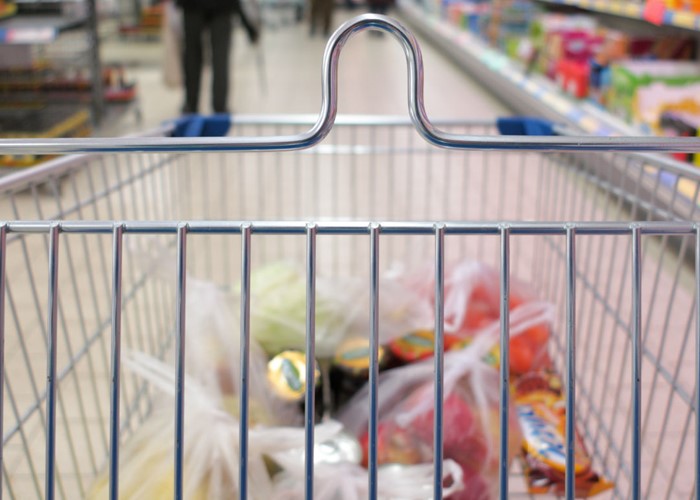Morrisons introduces 5% deposit for online orders

Deposit is ‘reserved’ on your account the day before your delivery is due.
Morrisons has revamped the way that its online orders are handled.
It used to be the case that when you booked an online shop from Morrisons, £1 was ‘reserved’ on your card.
The full transaction price was then taken from your card when the shopping was delivered, including any price changes due to substitutions.
That has now changed however, with the supermarket instead implementing a ‘deposit’ scheme.
As a result, the day before the food is delivered, Morrisons will instead reserve a 5% deposit, meaning the amount will vary based on the size of your order.
You will then be emailed to notify you of any substitutions likely to take place to your order, giving you the chance to reject them before delivery.
You will then be charged based on the actual size of your final order, with the deposit returned to you ‒ assuming it isn’t needed to cover the cost of those substitutions ‒ within a couple of days of delivery.
According to Morrisons, this new deposit scheme will help ensure that shoppers “pay the correct amount” for their online orders.
What this means for shoppers
It would be easy to dismiss the potential impact of a deposit scheme like this. After all, it’s only 5% of the order, and the money is only ‘reserved’ from the day before the shop, rather than on the day the order is placed.
However, I think this would be a mistake. The reality is that an awful lot of people are having to count every penny at the moment.
And once that money is reserved, it means you can’t spend it elsewhere.
As a result, if you have a big shop booked in, you will also need to account for the ‘deposit’ being unavailable the day before delivery, even if you end up not needing any substitutions.
There are plenty of people who simply don’t have that money sitting around, ready to serve as a deposit.
That means making tough choices, possibly giving up something else that they would rather spend that money on, or perhaps moving to a different supermarket.
After all, it’s worth noting that other supermarkets don’t tend to charge deposits like this, and certainly not to the level that Morrisons do.
Many simply take the full amount on the day of delivery, while Asda takes just a 1p deposit.
Counting the cost
A deposit charge isn’t going to be the deciding factor for most of us when determining where to do our shopping. However, if money is tight, it will certainly be an important factor.
And money is increasingly tight when it comes to grocery shopping, given the incredible rate of inflation we are seeing on our food spending.
According to the latest data from the British Retail Consortium, food price inflation rose to 4.3% in May, from 3.5% in April.
That’s the highest level seen in a decade, and compares to the 2.8% inflation across goods of all kinds.
That is a significant rise in prices for households of all kinds to deal with, particularly given the cost of seemingly everything else we have to buy each month is also rising sharply.
Turning to cheaper options
Perhaps given the price pressures we face, it’s no surprise that more and more people are turning to the deep discounters.
Figures from Kantar World Panel show that the likes of Aldi and Lidl are playing a more significant role for shoppers across the country today than was previously the case.
Since Boxing Day, Lidl’s market share has grown from 6.3% to 6.9% for example, while Aldi’s has moved to 9% from 7.7%.
Compare that with the drops seen by Tesco (-0.5%), Sainsbury’s (-0.9%), Asda (-0.4%) and Morrisons (-0.6%) and it’s clear that an awful lot of shoppers are turning away from the biggest names, and opting to shop where they think they will get more for their money.
It’s not hugely surprising therefore that we have a host of supermarkets unveil their own price promises and promotions in order to try to appeal to struggling customers.
That might be a price matching scheme with a cheaper rival, slashing prices on essential items, or relaunching their own-brand ranges.
Ultimately however individual shoppers will make their minds up over where to spend their cash by taking everything into account, including introducing things like deposit charges which could have a knock on effect on the rest of their money management.
Comments
Be the first to comment
Do you want to comment on this article? You need to be signed in for this feature